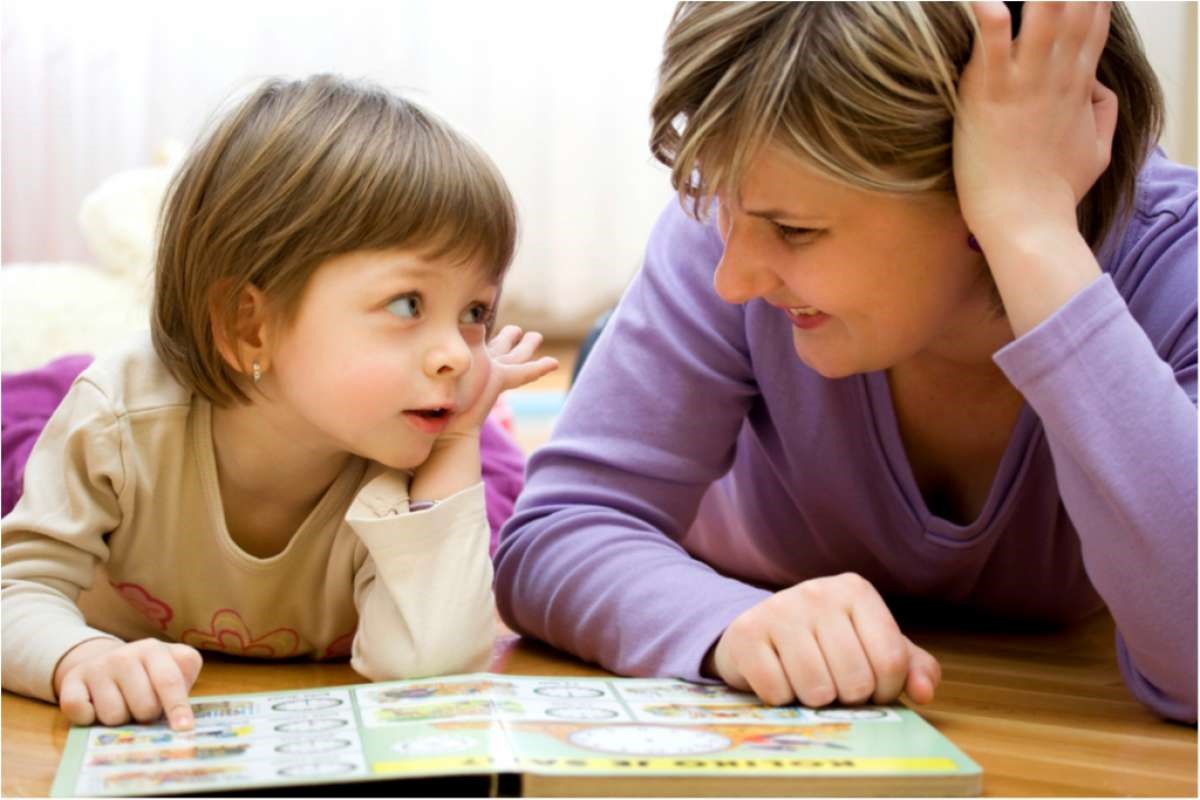
A little girl looks at her mom, showing one big way that people grow alike naturally [1]
People grow alike temporarily while they’re together
…people in close relationships become more similar to each other over time. For example, relationship partners converge in their values and attitudes, verbal and social skills, cognitive complexity and mental abilities, eating and drinking habits, and perceptions of others.
People express emotion through facial, vocal, and postural behavior, and quickly and automatically detect and interpret the emotional expressions of others.
Moreover, people are quite susceptible to the social transmission of emotion. Research on emotional contagion has shown that people automatically mimic facial expressions, vocalizations, and postures when they interact with another person, which leads both individuals to experience similar emotions. Studies of empathy find that people take the perspective of others and vicariously feel the emotions that the other person feels.
People grow alike over time emotionally
In the present study, we ask: Do relationship partners also converge emotionally over time?
The development of emotional similarity would benefit relationships in at least three ways. First, because emotions are modes of relating to the environment, emotional similarity would coordinate relationship partners’ thoughts and behaviors and help them respond to potential opportunities or threats. Second, when two people feel similar emotions, they more accurately perceive each other’s intentions and motivations. Third, emotional similarity would be reinforcing to relationship partners; when two people feel similar emotions, their own feelings and appraisals are validated.
…our three studies offer strong evidence that emotional convergence does occur…
…the current research shows how emotions help individuals build and maintain long-term, intimate relationships. Our research shows that close relationships shape emotional responses in fundamental ways. We become emotionally similar, both in experience and display, to those people with whom we are intertwined.
People grow alike in ways that help the relationship
…we hypothesized that emotional similarity would benefit close relationships. The evidence for this hypothesis was strong and consistent across studies.
…this similarity would help coordinate the thoughts and behaviors of the relationship partners, increase their mutual understanding, and foster their social cohesion.
…relationships whose partners were more emotionally similar were more cohesive and less likely to dissolve.
People grow alike regardless of whether the changes help them personally or hurt them personally
…our findings shed light on processes by which relationship partners “transmit” emotional disorders such as depression or anxiety. For example, children of depressed parents are often themselves depressed, and individuals who live with a depressed person can become depressed. The social transmission of emotion may not be limited to clinical levels of emotionality, or even limited to negative emotion. The transmission of emotional disorders can now be understood as a special case of a much broader and inherently normal emotion process in close relationships.
…emotional convergence may be due to a convergence in appraisal styles. Ways of appraising events lead to specific emotions, just as specific emotional dispositions lead to ways of appraising social events. For example, people who view an event as uncontrollable and dangerous tend to experience fear in response to that event. When individuals become close, they might converge in appraisal styles, which in turn leads to greater similarity in emotional responses. Consistent with this idea, close friends are similar in the cognitive dimensions they use to describe themselves and others.
The people with less power change the most
…relationship partners with less power made more of the change necessary for convergence to occur.
These findings paint a striking picture of the emotional lives of powerful and powerless people. The emotional lives of low-power individuals… seem more variable, changing across relationship contexts.[2]
- “Child & Parent Place (CAPP).” www.lutherwood.ca/mentalhealth/capp. Accessed 29 May 2017.
- Anderson, Cameron, Dacher Keltner, and Oliver P. John. “Emotional Convergence Between People Over Time.” Journal of Personality and Social Psychology 84.5 (2003): 1054-1068.